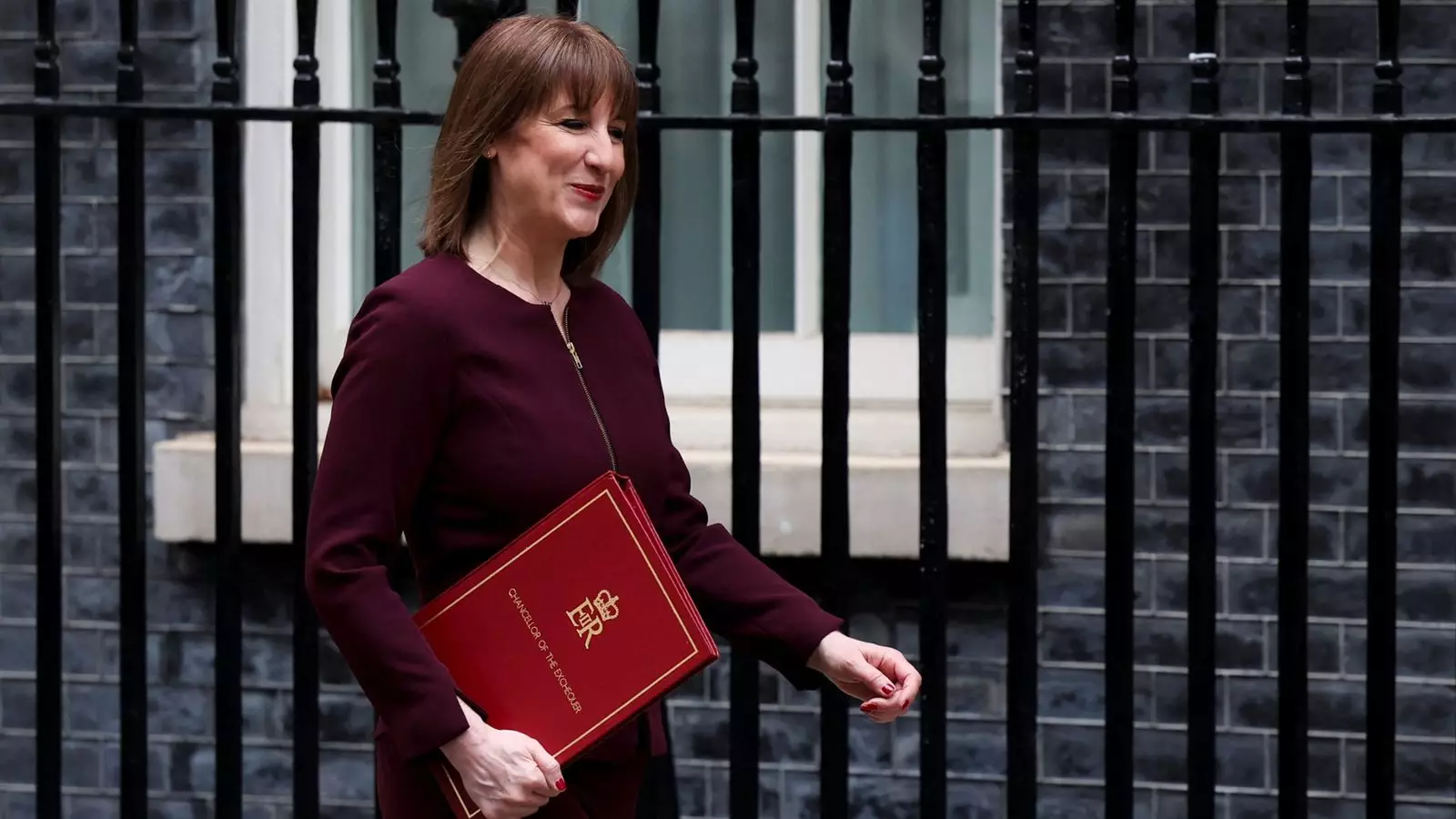In her recent spring statement, Chancellor Rachel Reeves drew attention to a stark revision in the UK’s growth forecast for 2025, slashing the projection from 2% down to a meager 1%. This downgrade, as announced by the Office for Budget Responsibility (OBR), signals troubling times ahead for the British economy, raising questions about the government’s fiscal strategies and broader economic competence. While Reeves has presented a vision of gradual improvement, with updates offering a more optimistic outlook for subsequent years, it is essential to scrutinize the underlying assumptions and the potential socio-economic implications of such forecasts.
Underwhelming Growth Projections
Despite the optimism projected for 2026 through 2029—with growth expectations increasing to 1.9%, 1.8%, 1.7%, and 1.8% respectively—one cannot help but feel a sense of disillusionment. The phrase “no shortcuts to economic growth”, uttered by Reeves in the Commons, seems more like an admission of failure than a strategy for success. The chancellor suggests that tangible improvements will take time and require “hard yards,” but this outlook raises concerns. Given the current pace of global economic shifts, a ‘slow and steady’ approach may not be sustainable. As inflation persists and the cost of living crisis continues to pressure households, it remains to be seen whether such prolonged, tepid growth will indeed suffice to enhance living standards and job security.
Hope in Housing and Planning Reforms?
Reeves highlighted positive adjustments to the National Planning Policy Framework, suggesting that mandatory housing targets and the transformation of “grey belt” land for development would boost real GDP by (0.2%) by 2029-30. While propelling housing initiatives can catalyze growth, the leap to a substantial (0.2%) increase feels minimal against the backdrop of a nation struggling with a breakdown in trust regarding government policies. The notion of delivering an additional £6.8 billion to the economy over the next decade is merely aspirational; what matters more is how households perceive and feel these changes. Housing alone cannot rectify deeper structural issues, such as stagnant wages and escalating living costs.
Fiscal Discipline and Social Concerns
As the statement progressed, Reeves laid out her vision of fiscal prudence, projecting a dramatic turnaround from a deficit of £36.1 billion in 2025-26 to a surplus by 2027-28. To this end, Labour’s proposed welfare cuts, anticipated to save around £4.8 billion, are deeply concerning. The notion of slashing support, particularly to vulnerable populations, under the guise of budgetary discipline, risks exacerbating social inequality. Critics, including shadow chancellor Mel Stride, have already condemned these measures, accusing Reeves of superficial fiscal targets and inadequate planning. The dismissal of tax rises, coupled with a reliance on cracking down on tax evasion for an additional billion pounds, seems more a hopeful wish than a viable solution.
A Leaner Government: A Double-Edged Sword
The chancellor’s plan to streamline the civil service through a voluntary redundancy scheme, aiming for £3.5 billion in savings by 2029-30, raises red flags about the government’s priorities. A ‘leaner’ government, while ostensibly a worthy goal for efficiency, risks undermining the very support needed to address comprehensive socio-economic issues currently unfolding. Reduced bureaucratic capacity may hinder the execution of vital policies that are crucial for long-term growth, especially in sectors like health and education, which directly affect citizens’ everyday lives.
The Political Climate and Future Implications
As the dust settles from Reeves’ statement, the political landscape is suffused with uncertainty. The notion that we have transitioned “from incompetence to chaos” is not far off, given the cynicism that permeates current economic discussions. The government finds itself in a precarious position; it must navigate not only the immediate challenges of inflation and stagnation but also the long-term implications of its budgetary decisions. Labour’s aspirations for a revitalized economy must contend with mounting skepticism from both sides of the political spectrum.
This is a critical juncture for the UK, where growth forecasts require not just optimism but realistic, tangible strategies that address the underlying flaws in the system. Without addressing these issues head-on, the goal of rejuvenated economic health may remain an elusive dream, lost in the labyrinth of policy vagueness and political missteps.


Leave a Reply